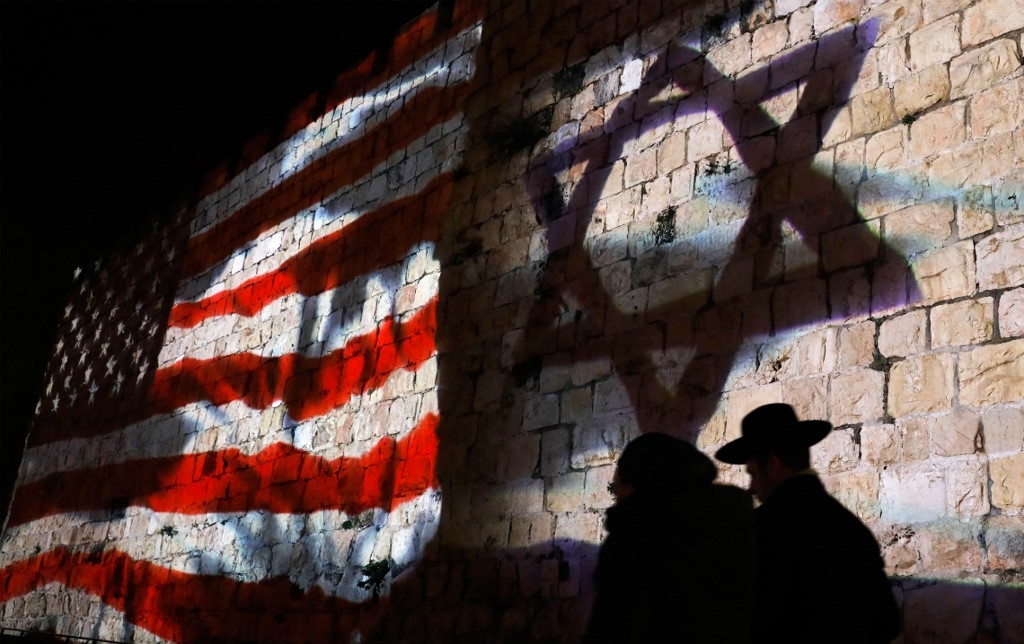US to allow citizens born in Jerusalem to list Israel as birthplace

US citizens born in Jerusalem will be allowed to list Israel as their birthplace on passports and other documents, a move analysts say is aimed at shoring up support for President Donald Trump among evangelical Christians and other Israel-backers just days before the 3 November election.
Secretary of State Mike Pompeo announced on Thursday that the decision was "consistent" with Trump's 2017 proclamation, in which the White House reversed decades of US policy and recognised Jerusalem as Israel's capital.
"As the president stated in his proclamation, the United States recognises Jerusalem as the capital of Israel and its seat of government but continues to take no position on the boundaries of Israeli sovereignty in Jerusalem," Pompeo said in a statement.
"This matter remains subject to final status negotiations between the two parties."
Stay informed with MEE's newsletters
Sign up to get the latest alerts, insights and analysis, starting with Turkey Unpacked
Israel captured and occupied East Jerusalem in the 1967 Middle East War along with the rest of the West Bank and the Gaza Strip, territories the Palestinians seek as part of their future state.
Israel considers all of Jerusalem its "unified, eternal" capital while the Palestinians want their own capital in East Jerusalem.
The international community has maintained that Jerusalem's status must be agreed upon in a settlement between the Israelis and Palestinians, and 128 countries condemned the US decision in a UN General Assembly vote in late 2018.
Since Trump took up residence in the White House in January 2017, the US has repeatedly promoted Israeli interests at the expense of the Palestinians.
Earlier this year, Trump unveiled his so-called "deal of the century" addressing the Israeli-Palestinian conflict. Opponents dismissed it as a "smokescreen" for Israel's annexation of settlements deemed illegal in the occupied West Bank, as well as swathes of the strategic Jordan Valley. The plan also referred to Jerusalem as Israel's capital, and denied the Palestinians the right to return to their ancestral homes in what is now Israel.
In exchange for agreeing to the proposal, the Palestinians would receive a disjointed state with no control over their borders or airspace.
Annexation of occupied territory is illegal under international law, and the Palestinians overwhelmingly rejected the deal.
Earlier this week, a poll of Arabs in 18 countries across the Middle East and North Africa suggested that neither Trump nor his election rival, Joe Biden, were good for the region.
The Democratic nominee has said that if elected president he would not reverse Trump's decision of moving the US embassy to Jerusalem, but would re-open the Palestinian diplomatic mission in Washington, which has been shuttered by Trump.
Middle East Eye delivers independent and unrivalled coverage and analysis of the Middle East, North Africa and beyond. To learn more about republishing this content and the associated fees, please fill out this form. More about MEE can be found here.





